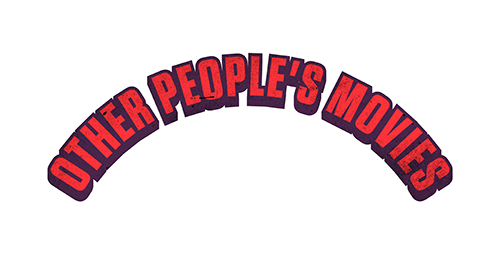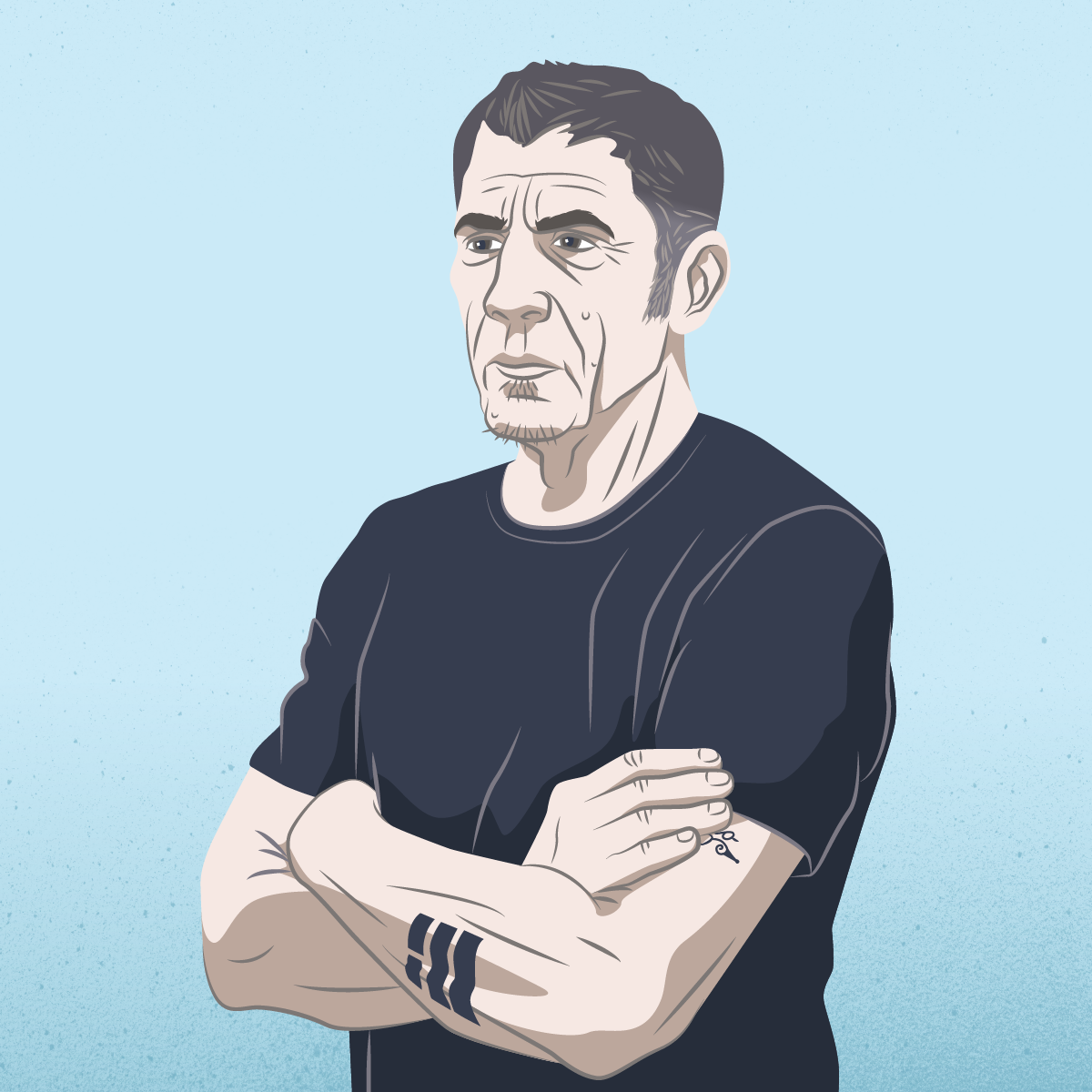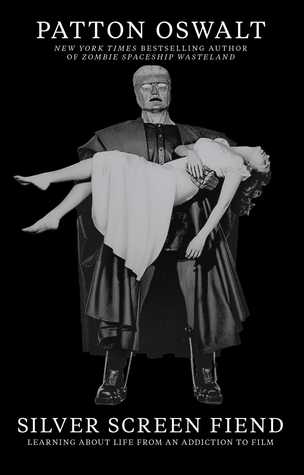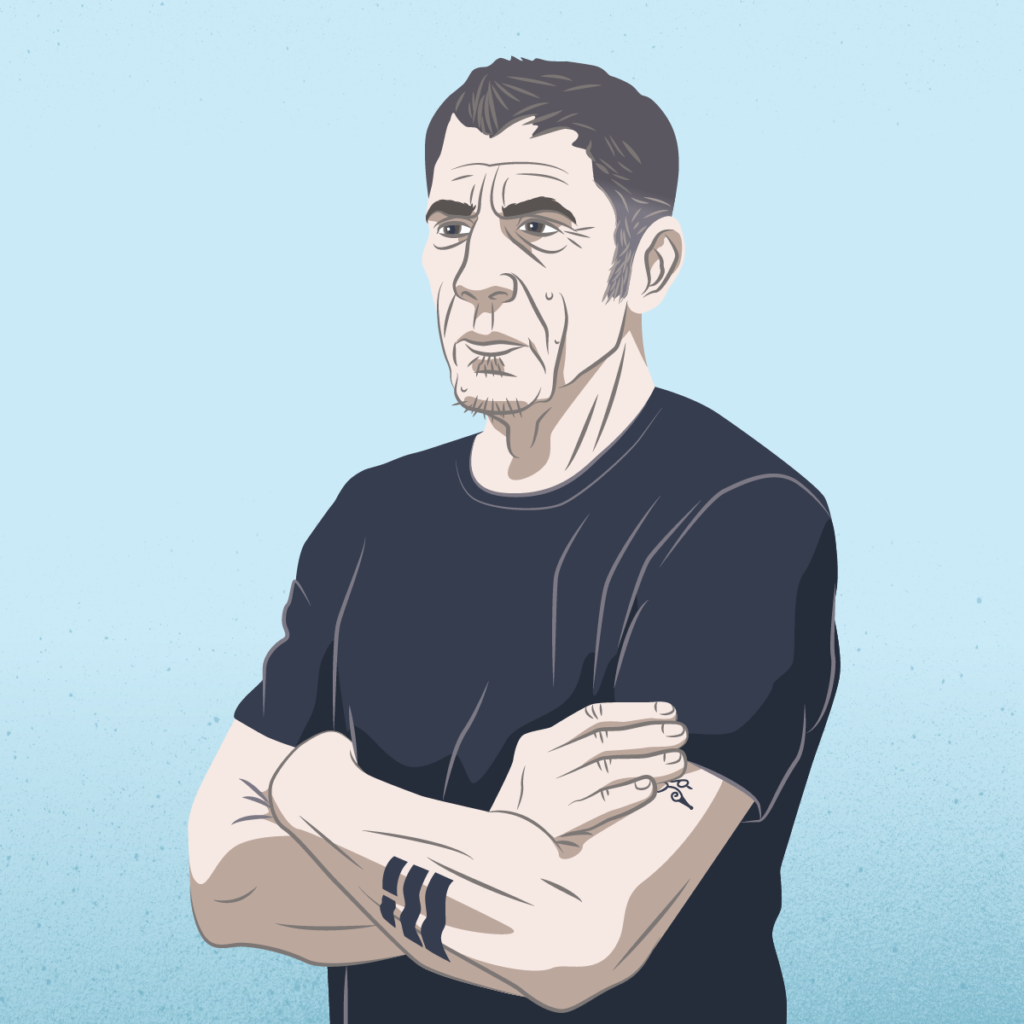
**Author’s Note: I would like to state upfront that this retrospective of Jerry Stahl’s life and career was done completely without his participation. I’m simply a massive fan of his and since there isn’t another complete chronological examination of his life and work, I figured I’d go ahead and fill that void as best as I could. This retrospective was written entirely with the aid of all the cited sources, and I wish to thank and acknowledge everyone, Jerry Stahl especially, for their work.
Drugs, Drugs, and More Drugs (2011-2013)
2013 was quite a busy year for Jerry Stahl. Not only was he a father to a newborn baby, but he also saw the publication of no less than three books with which he was involved. Though years of sobriety were behind him at this point, the subject matter of all three books, in differing manners, revolves around drugs.
Published in January 2013, The Heroin Chronicles is part of a series published by Akashic Books in which each volume consists of a collection of short stories by different authors that revolve around a specific drug. Stahl had previously contributed Twilight of the Stooges (which was later published in his previously covered short story collection, Love Without) to The Cocaine Chronicles in 2005 and Bad (which would later be published in Bad Sex on Speed) to The Speed Chronicles in 2011. For Heroin, Stahl contributed a piece called Possible Side Effects, which was essentially an early draft of part of the prologue for his upcoming novel, Happy Mutant Baby Pills.

Most notable, however, is the fact that Stahl not only served as a contributor to The Heroin Chronicles, but was also its editor. Stahl made the decision to primarily choose unknown authors for the book, with the exceptions of Eric Bogosian and Lydia Lunch.
Stahl closes his introduction to the book and its contributors by stating, “Unlike serial killers or traditional torturers, junkies spend most of their time savaging themselves. That everyone they know and love in the world is often destroyed in the process is just a side issue… From this festive and inelegant hell, these junkie writers—some ex, some not-so-ex, but a good editor never tells—have returned with a kind of sclerosed wisdom. Their burning lives may lie scattered behind them like the remains of a plane crash in an open field, but the flames will, I guarantee, illuminate the lives of any and all who read it, whether addicted to dope, Jim Beam, gun shows, bus station sex, Mars bars, Texas Hold’em, telenovellas, fame or—thank you, Jesus, Lord of Weird Redemption—great fucking writing.”1
Only weeks after the publication of The Heroin Chronicles, Stahl saw another one of his books hit shelves. Bad Sex on Speed was published in February 2013.
The book came about due to Stahl’s increasingly serious health issues stemming from his infection with Hepatitis C, a virus that causes liver inflammation which he had contracted back in his days of shooting heroin. To backtrack slightly, Stahl’s condition was worsening in 2011. His doctor put him on a non-FDA-approved drug cocktail to combat the illness. The drugs, simply put, made him toxic to be around and he had to temporarily separate from his then-pregnant girlfriend in order to avoid potential damage to the fetus. Though the drug would ultimately wind up curing Stahl of the illness, the process of getting there was rather uncomfortable, to say the least.
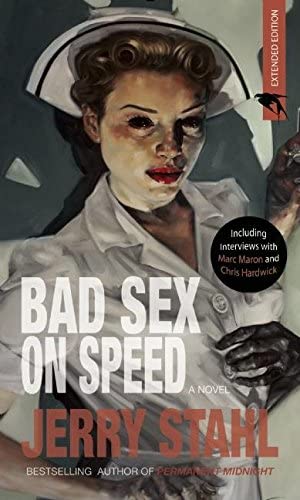
The effect of the hepatitis-combatting drugs heavily resembled the effects of speed, so Stahl decided to write about characters who were on the drug and experiencing similar effects and hopelessly scattered thinking. The final result is experimental literature, a short series of abstract passages with recurring characters and themes that loosely combine to create a whole that is largely open to the reader’s interpretation. The random, stream-of-consciousness writing sometimes makes it intentionally unclear as to who or what is the focus. The book is a collection of anecdotes, remembrances, and half-stories told in a manner that refuses to resemble linear thought. It is an often-times sarcastic and Burroughs-esque journey into the scrambled egg brains of amphetamine addicts that are both using and withdrawing.
Told entirely through second-person narration, the book sums up itself and Stahl’s thought process while writing it early on: “You suffer compulsive thoughts—sometimes just images—that you do not want to think, but cannot stop thinking.”2 The book goes on to offer many insights into the book’s characters’ drug of choice. These include lines like “speed means being your own audience for the running commentary of your death”, “Speed never made you smarter, it just let you be what you already were longer. It turbo-charged stupid”, “[Speed] used to explain the universe. That’s how you knew you were really off speed. You had no fucking clue about the universe, except that it made you self-conscious”, “Speed stories never track. They only make sense if you’re on speed”, and “With enough speed, you could make your own history and live in it.”2
Bad Sex on Speed, typical for a Jerry Stahl book, also contains a character who is deeply affected and haunted by an unwell mother. Mother figures, time and time again in Stahl’s work, are a constant source of shame, humiliation, guilt, horror, and sadness. “From the time you were tiny, your earliest baby-baby memory, whenever you woke up and opened your eyes, your mother was staring at you”2 provides the reader with the paranoid sense of never escaping a mother’s judgment. Lines such as “No matter how much you yelled for your mother, she never answered” and the description of a “Mommy that needed a mommy”2 haunt the reader endlessly.
The book also contains a number of typically wise, darkly witty, and deeply empathetic Jerry Stahl observations on humanity and the reality of an addict’s life. These observations include, “When there’s nothing else, you can love people just from knowing they suffer too”, “To be human is to be addicted”, “All addiction is a conspiracy against the self”, “the loneliness is so deep there is no explanation but the drug”, and “Hell is other people who are you.”2
While easily Stahl’s most challenging read to date, Bad Sex on Speed is also one of his most courageous efforts. It boldly communicates its ideas and the internal lives of its characters through emotion rather than intellect. It results in a more subconscious understanding of its intentions as opposed to an easily digestible and consciously aware one. It’s the kind of book that demands multiple reads and provides something new with each one. It’s a book that dares to be as lost, frightened, ill, unfocused, and pained as its author was when he created it.
In November of 2013, Stahl saw the publication of his third book that year, the novel Happy Mutant Baby Pills, which satirically targets Big Pharma and other major corporations and companies behind numerous common (and discreetly dangerous) products.
While studying all the toxicities of the modern world and researching the potential deformities that his baby could suffer as a result of the hepatitis cure he was then on, Stahl’s intentions with his then-in-the-works novel became clearer. He then found further inspiration, as Stahl states, “During a period of world-class insomnia, [when] I found myself zoning on Morning Joe at four in the morning… As soon the commercials came on–inevitably remedies for torments of the depleted testosterone, excess fat or frequent urination variety–I found myself riveted. Beneath the blatant comedy fodder of a product supposed to boost your manhood that can actually shrink your testicles, there’s a deeper unspoken and ultimately soul-crushing message: sure we might give you bleeding eyeballs, rectal ooze and suicidal thoughts — but guess what? Apparently your life is so hellish that busloads of people just like you have decided the only way to survive it is to take our pills–no matter how grotesquely unpleasant the side effects. If you want to understand America, follow the pharmaceuticals.”3
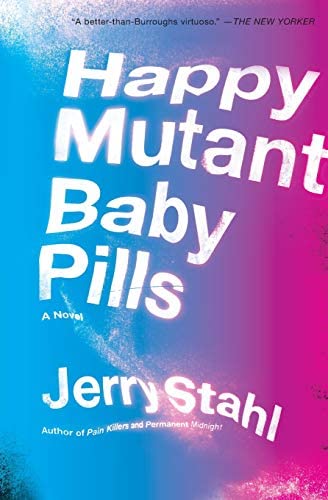
Stahl stated that he “started this novel with busloads of information” and that “For once, I had a book driven by information. Out of a radical novelistic desperation I created [the book’s] characters to subversively—and hopefully not too didactically—convey this information.”4
Stahl’s protagonist and the book’s first-person narrator, Lloyd, is, unsurprisingly, an addict who states early on that “Heroin’s the cool-fingered loving Mommy I never had.”3.1 He’s also a writer who is responsible for pharmaceutical side effect descriptions and disclaimers that are found on pill boxes and bottles. Stahl addressed how he came up with the character by stating, “Every time I see the olestra ad, with the famous ‘anal leakage’ side effect, I think, some guy had to get up in the morning, drag his ass to the subway, get to the office and sit down with his Dilbert mug and his shitty MacDonalds apple turnover and actually write that.”3
As described in the book, Llyod is “the guy who always wanted to be a writer—who read the back of cereal boxes as a kid, dreamed of being Ernest Hemingway, then grew up and wrote the back of cereal boxes.”3.1 Sounding like Jerry Stahl writing for ALF, Lloyd relays that “heroin helps with some of the shame I feel about writing this stuff.”3.1
Lloyd, like Stahl, has also written for porn and also writes for the “Safe Edge”3.1 television series, Crime Scene Investigation. Stahl explained why he added such an explicitly autobiographical detail in the book when he said, “I got to this point in the story and what felt perfect, for the moment, was a chunk of my own experience. Transposed onto the character… But even the CSI thing was just a backdrop. It’s not like, in real life, I went in there with a maniacal kleptomaniac girlfriend who stole death props and wanted to put poison in her vagina [like a character does in the book]. If you’ve been to Iraq, or a steel mill, or the corner of Crack & Eightball – you throw in details. I’d worked at the studio in Santa Clarita, so I put the characters there. Just because something really happened doesn’t mean it isn’t fiction. And vice versa.”5
Lloyd’s world is turned upside down after meeting Nora, a pregnant greeting card writer who, like many of Stahl’s most noteworthy female characters, is as alluring as she is dangerous. Nora, like Tina in Plainclothes Naked and Pain Killers, is essentially another Stahl take on the classic femme fatale archetype: attractive, manipulative, sarcastic, steely, dangerously unpredictable, and capable of just about anything. Unlike Tina, however, there isn’t much warmth to be found behind Nora’s hardened and potentially lethal exterior.
Nora’s inhumane goal, as it is eventually revealed, is to protest Big Pharma and other corporations and businesses by using her unborn fetus as a living example of the side effects and damage that their products can produce. Nora, in the name of her cause, ingests as many potentially hazardous products as she can to deform her unborn child. “The point is not that birth defects are a side effect of rampant capitalism,” Nora tells Lloyd, “The point is, birth defects are the point! Disease is the point! You think deregulation is just to make sure it’s easier to make a profit? Wrong. It’s so the general population can stay gene-raped, from conception on.”3.1 Stahl admitted that Nora’s anger towards such carelessness and greed is an extension of his own feelings, as he stated, “It’s all me. And I have a real fucking rage about it.”6
Everyone in Nora’s path, Lloyd especially, is a mere and disposable means to her end. Typical of a Jerry Stahl male character, Lloyd is “addicted to women who need help”3.1 and is instantly and hopelessly attracted to the danger and instability that Nora exudes. Titillated and fascinated after first meeting her, he states with intrigue, “I couldn’t even tell you why, maybe it was FMD—Film Noir Disease—but I pegged her for a woman on the lam.”3.1
Lloyd finds himself going along with anything Nora suggests or needs, including a darkly hilarious moment where he kills a man at a bus station with a paper clip after being convinced that the man is a threat to Nora. “Do him. For me,”3.1 she whispers to Lloyd before the deed, sounding very much like an ice-cold character straight out of a ’40s noir. However dangerous and heartless her actions may be, Lloyd makes it clear that he is completely taken by Nora and her purpose, at one point excitedly stating, “I still can’t believe I found a woman who can talk side effects.”3.1
Countless facts about the dangers of common corporate and other business products, their effects on the environment, and the side effects they have on their consumers are relayed throughout the book. Some of these facts find their way into casual conversation, such as when Nora and Lloyd go to a supermarket and discuss hidden evils like unadvertised GMOs in meat that can cause birth defects and growth hormones in milk that can cause developmental issues and other unnatural occurrences. “Breast milk’s full of paint thinner, termite killer, and toilet deodorizer. And that’s just the good shit,”3.1 Nora matter-of-factly says to Lloyd at one point.
Other such observations and/or concerns come in the form of random, almost stream-of-consciousness bursts that fit into the narrative when Lloyd’s thinking is scattered or under stress. The character at one point laments, “Fucking Head and Shoulders has left me linear-thought-fucked and incapable of spinning a straight narrative without veering left and right, careening over the median like a lush behind the wheel on New Year’s Eve.”3.1
Happy Mutant Baby Pills is, ultimately, the most brutally straightforward book Jerry Stahl has ever written. It completely lacks hope and comfort and offers little of the heartfelt sincerity that is present in his other books to offset the shock value. Unabashedly so, the book is entirely driven by shock value. It uses satire and otherwise unmentionable details to spread the information that it wants to communicate. It’s a daring accomplishment and a painfully hilarious read that will make the reader second-guess their reality and examine that which has been intentionally hidden about their everyday lives.
The book raises awareness and asks the reader why Big Pharma and other major corporations and businesses, despite all the available information about their many serious dangers, continue to thrive. Happy Mutant Baby Pills courageously refuses to provide any easy answers, leaving it up to the reader to decide for themselves what to do with the information they find within it. The book, like Nora, simply wants to “Wake the country up to the dangers which we breathe, absorb, consume, and ultimately pay for with our money, our lives, and the well-being of our unborn children.”3.1
While Stahl was doing promotional work for the book, a short comedic promo called Jerry Stahl Rides Dirty was released on the website, Funny Or Die. Produced by FOD and Ben Stiller’s Red Hour production company and directed by friend and frequent collaborator Larry Charles, the fictional video features Stahl trying to promote his new book while living out of his car. Along the way, he encounters such celebrity guests as Stiller, Michael C. Hall, and Flea. The short video is a hilarious and self-deprecating examination of the depths one can sink to in the name of self-promotion.
Red Hour also optioned Happy Mutant Baby Pills to adapt it for the screen. It was eventually developed as a television series called If Swelling Persists, which, to date, remains unproduced.
The Side Effects of Not Dying Young (2013-2015)
With the release of a few new books shortly behind him, Stahl continued to accept offers on screenplay jobs and collaborations. Around this time, he worked with Tweak: Growing Up on Methamphetamines and We All Fall Down: Living With Addiction author Nic Sheff on a couple of projects that were never filmed. He also worked with Christian Death co-founder, former Bad Religion drummer, and writer John Albert on a screenplay about the dark side of early Hollywood, but that project also never made it to production. Perhaps most intriguing was the work that Stahl was doing around this time with Larry Charles on an animated musical for Dreamworks. Little else is known about the project, but it seems amusingly atypical for both of its creators and has yet to be produced.
Stahl’s next-produced screenwriting efforts were for close friend and frequent collaborator Marc Maron’s semi-autobiographical series, Maron. It stars Maron as himself, a neurotic and depressive podcaster who is constantly at war with his addictive and compulsive tendencies. The show, though not as dark or driven by shock value as his most noteworthy works, is as perfect a fit for Stahl’s artistic tastes and life experiences as anything could be.

Stahl came on board during the show’s second season and would stay on through its final and fourth season, writing seven episodes total and serving as a consultant on many others.
Stahl quickly discovered that he was right at home with the show, stating “I’m walking in with an established character, into a room full of writers in the second season of a sitcom. And my job is to sound like the star of the show. The difference, though, is that Maron and I go way back. He’s one of my closest friends, and we’ve been to the wars together. I know his voice because I’ve heard it over a million meals and rides and phone calls. And I can more than relate. It’s hard to think of a better gig than hanging in a room full of comedians discussing crazy-ass relationships. Let’s just say I’ve done some research. The muscles aren’t all that different from fiction – but if I laughed that much writing novels, I’d be locked down in a corner somewhere on a stellazine-drip.”1
Stahl’s first Maron episode, titled White Truck, aired in the summer of 2014. In the episode, Maron gives into his sexual compulsions when he starts an affair with a married “sociopathic realtor”2 that he meets in a mild car accident. After the woman’s husband starts following him in a white truck, Maron is forced to face the consequences of his actions. Maron sums up the situation on his podcast at the episode’s end: “Why is coffee and ice cream so goddamn good? Two pleasure delivery systems that eventually ruin you. Is that just the deal with relationships? They just feel unbelievably amazing and you’re sitting there thinking, ‘When is this gonna kill me?’”2
Stahl’s next three Maron episodes were for the show’s third season and they all aired in the summer of 2015. Professor of Desire opens with an interview between Maron and Stahl himself, in which Stahl dryly states, “If Dostoevsky had written for ALF in his twenties, nobody’d take Crime and Punishment seriously.”3
The episode centers on a college professor and writer friend of Maron’s who is cheating on his wife with his TA. The TA misses the professor’s “big dick sentences” and takes it on herself to be his “muse”3 by threatening to make their affair public in order to make his life hell and induce his creativity. “He does his best work in chaos and dread,”3 she explains matter-of-factly. Maron astutely sums up the episode thematically by wondering on his podcast at the end, “Is it possible to do great work without being miserable or insane? Do great artists need messy lives?”3
Anti-Depressed centers on Maron’s experiences with taking anti-depressants while he is in the middle of developing his own talk show. After taking the drugs for a short amount of time, Maron finds himself mellowing, laughing at lame jokes, and exhibiting nervous tics. He is soon visited by the spirit of a deceased friend. After Maron complains about being flaccid because of the pills he’s on, the friend, sounding like a character straight out of Happy Mutant Baby Pills, tells him, “Oh, you know, they got a pill for that, too. As a matter of fact, they got a pill for everything, you know? So, you don’t have to worry. Except, of course, about having enough pills.”4
Spiral, Stahl’s next episode, centers on Maron breaking his sobriety with painkillers for his back pain. He quickly starts abusing the pills and loses control, frequently hallucinating an overweight sad clown that appears to be following him throughout the city while holding a diminishing number of balloons. The episode ends with an incapacitated Maron doing a disastrous test run of his in-the-works talk show. Maron druggily states at the end, “The show’s not going great. It’s not going well. Not happy with it. But, um, I have confidence in my chair. I brought my chair from home. This is a captain’s chair and I am the captain.”5
By the time Maron reached its fourth and final season, Stahl was a full-time member of its writing staff. After years of experience in writing for television, this would be the first time he ever found himself working in such a position. Stahl was also solely credited for writing three more episodes that season, all of which aired in the spring and summer of 2016.
The 13th Step (which is the unofficial term for when a seasoned AA member makes advances toward a newcomer) plays like a story from Permanent Midnight. It centers on Maron’s experiences in AA and his newfound friendship with an attractive and freshly sober alcoholic. Maron, despite being deeply attracted to her, turns down the woman’s sexual advances so he can follow the rules and focus on his sobriety. “You’re just gonna hate yourself later,” Maron warns her. “I already hate myself,” she retorts in typical Jerry Stahl fashion, “now I’m just gonna feel like shit.”
Maron leads a meeting at the end of the episode and offers his perspective by saying, “For the newcomer, there’s one thing I wish someone told me when I was a newcomer and that’s… You can do all the things you did sober that you did when you were using. Okay, you just can’t blame drugs for doing it. You know what I mean? If you’re an asshole and you’re on cocaine and booze, it’s cocaine and booze’s fault, right? But if you’re a dick and you’re sober, you know you’re just a sober dick.”6
Sobriety Bush focuses on Maron’s time living in a sober living house that is run by a woman who explains her tragic motivation by stating, “My own son died of an O.D. thirty years ago. Nobody helped him, including me. Wouldn’t let him back in the house. So, after he died in a skid row motel with a needle in his neck, I made a vow to help as many of you boys as I could. The way I wish I’d helped my own.”7 The woman gives Maron a ‘sobriety bush’ from her garden and tells him, “while you’re here, you’ll tend it. Learn to love this little guy and you’ll learn to love yourself.”7 While maternally comforting Maron at the episode’s end, she sadly observes, “You’re all little boys… Just lost little boys.”7
The Bookstore finds Maron living out of an R.V. in a small town away from L.A. so he can be closer to his biological daughter. He takes interest in finding a job at a “classic used bookstore,”8 but first has to convince the grizzled, abrasive, and grumpy old owner that his store needs help.
When the owner responds to a customer’s request for Jonathan Franzen or Jonathan Lethem books, he sounds a bit like Jerry Stahl sounding off in an interview about the current state of the literary world: “Why do you wanna read those pussies? They write like they’ve been gelded. You know, writers used to live lives. Henry Miller put pubic hair on ham sandwiches… Norman Mailer stabbed his wife. And William Burroughs, he spent a year in Tangier shootin’ dope, starin’ at his big toe, and he came away with Naked Lunch. And he shot his wife! Nobody buys books by maniacs anymore!”8
In the midst of his time writing for Maron, Stahl saw the publication of his ninth book and second memoir, OG Dad, or, as it is officially titled, Old Guy Dad: Weird Shit Happens When You Don’t Die Young. Released at the beginning of 2015, the book started as an ongoing column on the website, The Rumpus.
Though Stahl had initial reservations about writing about fatherhood in general, he couldn’t help but enjoy it and stated about working on the then-column, “This morning I found myself writing the sentence ‘I just ordered a potty,’ and had kind of a moment. I mean, right when you think you’re losing your edge – I just ordered a potty! What would George Bataille say about that? The truth is, much as I may love kids–especially my own, strangely enough—I hate parent-writing in general, and daddy blogs in particular. It’s either too fucking whimsical-precious or goateeishly hipster-ironic. So I guess, since I have a little girl, whom I adore, and about whom I want to write, I’ve got to work through my own issues.”1
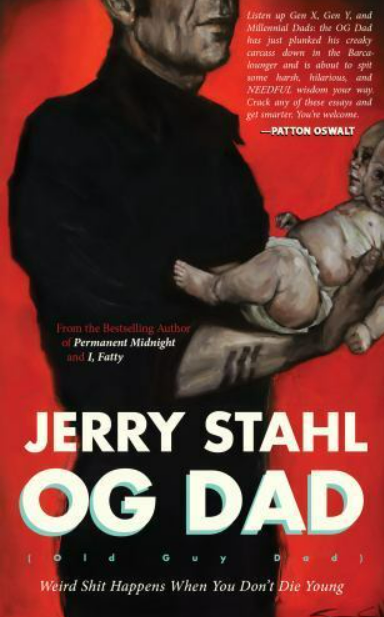
Thoroughly enjoying the process of doing The Rumpus column and offering his personal perspective of a man in his late fifties/early sixties raising a baby, Stahl got ambitious and wanted to do more with the material. He wrote the site’s editor, Stephen Elliot, a three-page pitch that proposed the column be published as a book. Elliot responded enthusiastically and told Stahl that he was, of course, interested and that he didn’t have to bother pitching him in the first place. Stahl took it upon himself to then write more material specifically for the soon-to-be-published book so it could appeal to and have something additional to offer those who were already fans of the column.
Stahl admitted that the strangest thing for him about OG Dad’s publication was finding it commonly categorized by booksellers in their inescapably vanilla parental section. Despite its relatively safe nature, however, it’s an enormous mistake to label OG Dad as a neutered addition to Stahl’s body of work. The cover art alone, which features a painting of Stahl holding a (partially hidden) two-headed baby, is striking evidence of this. Refusing to be safely labeled as any one thing, the book contains Stahl’s uncompromised voice, his uniquely and optimistically communicated cynicism, and his bluntly straightforward wit. Despite the book’s non-threatening surface, it’s ultimately written with the same unflinching honesty and hyper-awareness with which Stahl does his best writing.
The opening passage sets the stage for a one-of-a-kind book about parenting that refuses to relay its information with sentiment and without a very noticeable edge: “When I imagine the future, I see my daughter crawling her way across a blistered landscape, gasping for water, grubbing for cancer scraps while struggling to endure five more minutes in some world stripped of sustenance by the greed and idiocy of the generation that raped it to the bone before hers ever had a chance… I’m dead by then, but even from beyond the grave I feel guilty for having brought her into the living hell of the Monsanto-ravaged, Boko-Haramed, Naomi Klein dystopia that’s in the mail.”10
How many parenting books center on a recovering addict father who is tempted to relapse during his future wife’s labor by the “fucking narco-candy store” left behind by “the perky male anesthesiologist”10? How many of them claim that “Masturbating babies may be the best kept secret in parenthood”10? How many quote Hubert Selby Jr. by discussing “Sugar Tit” and “How addicts were toddlers who didn’t get the pleasure medicine they wanted, when they wanted it.”10 How many parenting books feature a father who admits to feeling so out of place amongst other, much younger fathers that he “feel[s] like drilling a hole in my skull and pumping Purell inside”? How many such books feature a father who is “fixated on the pesticides sprayed on the berries [my wife and daughter are eating], and the, no doubt, DNA-mutating, genetically modified, Monsanto soybeans in the soymilk we’re drinking”10?
How many similar books pass on the wisdom that “everything fun can kill you”10? How many have pricelessly self-effacing jokes like “She was newborn. I was newly old”10? How many parenting books are written by fathers who claim that he is “convinced that my rereading Naked Lunch on a glowing screen next to my child’s tender head is going to give her cranial blastoma, or some other heinous malignancy”10? And, ultimately, how many parenting books are narrated by a father who states that “Watching my offspring in her preschool years, I can’t help but remember the twisted dimensions of my own post-toddler psyche”10 then recollects a girl from his childhood who used to pull down her pants and pee in front of him in exchange for candy bars?

The answer to all of the above is none but one. And that is the one that is and could only be written by someone as intelligent, durable, experienced, overly aware, and caustically observant as Jerry Stahl. OG Dad is a hilarious, candid, endlessly amusing, and uniquely moving read. It stands tall amongst Stahl’s most renowned works both in its quality and in its refusal to fit into any one genre. It’s a parenting book unlike any other parenting book, along with being a memoir unlike any other memoir. It’s a creation that brightly showcases the originality and the distinct vision of its creator.
Stahl collaborated with novelist and Bored to Death creator Jonathan Ames on an adaptation of OG Dad called Two in Diapers, which was designed to be an ongoing series. That project, unfortunately, never came to fruition.
The Pain Snob concludes in part 7 of 7.
< 1 2 3 4 5 6 7 Sources >
